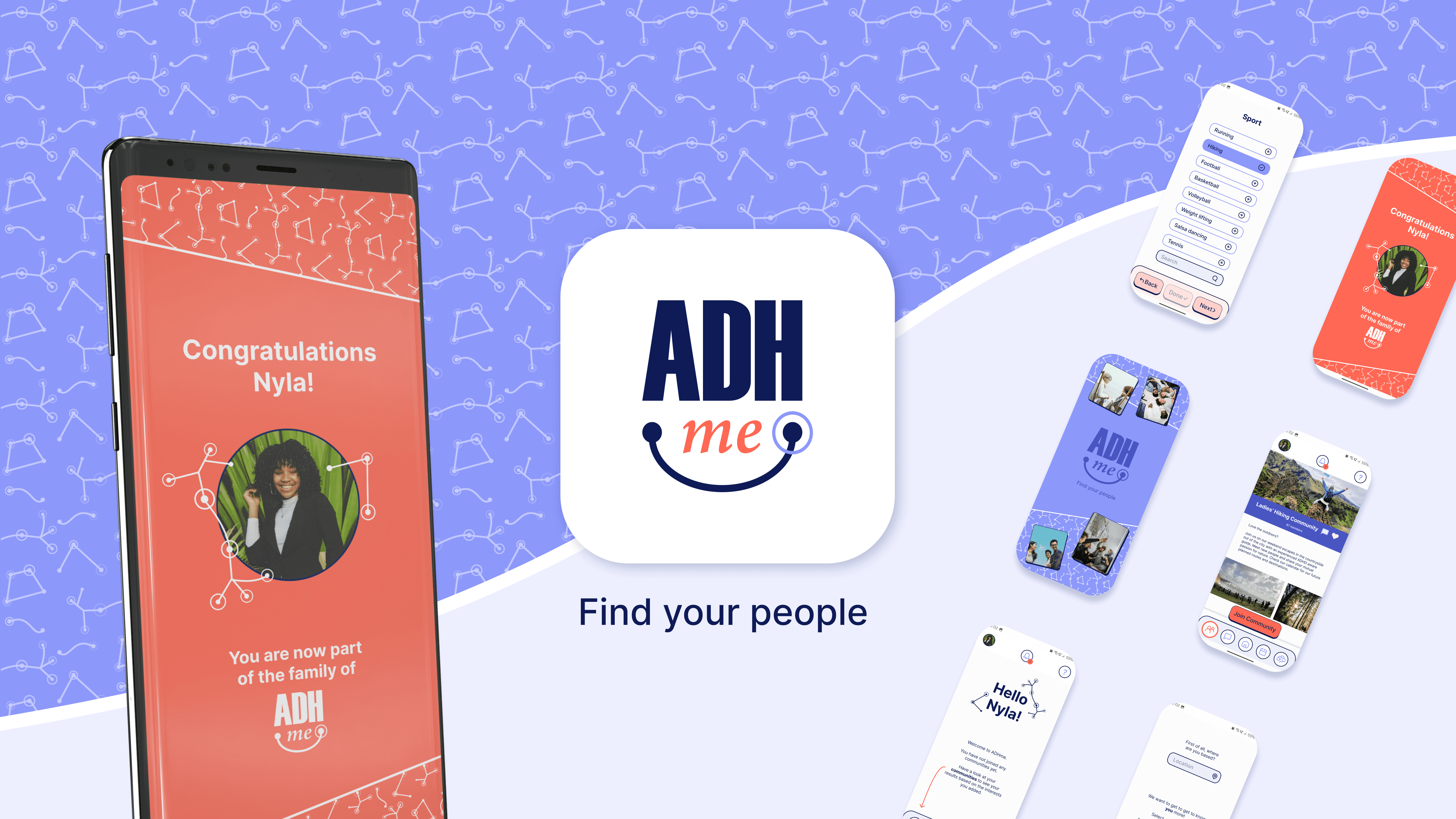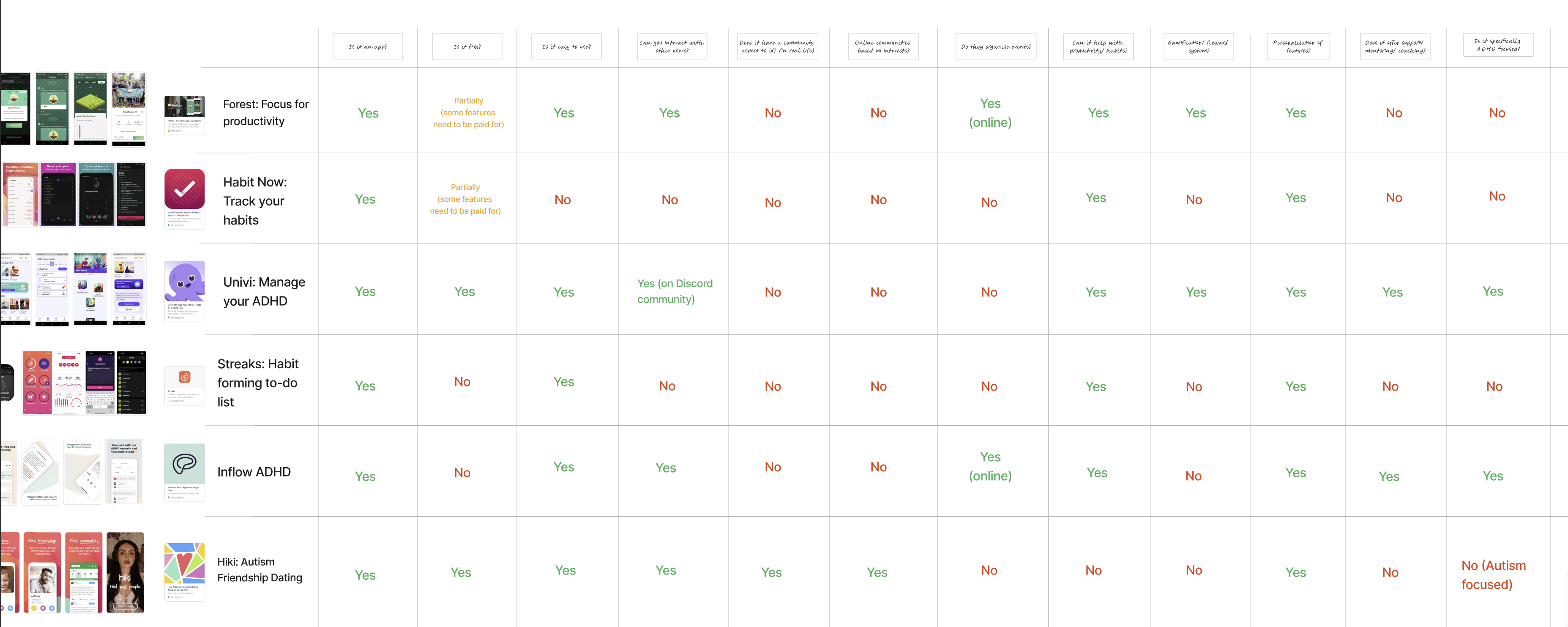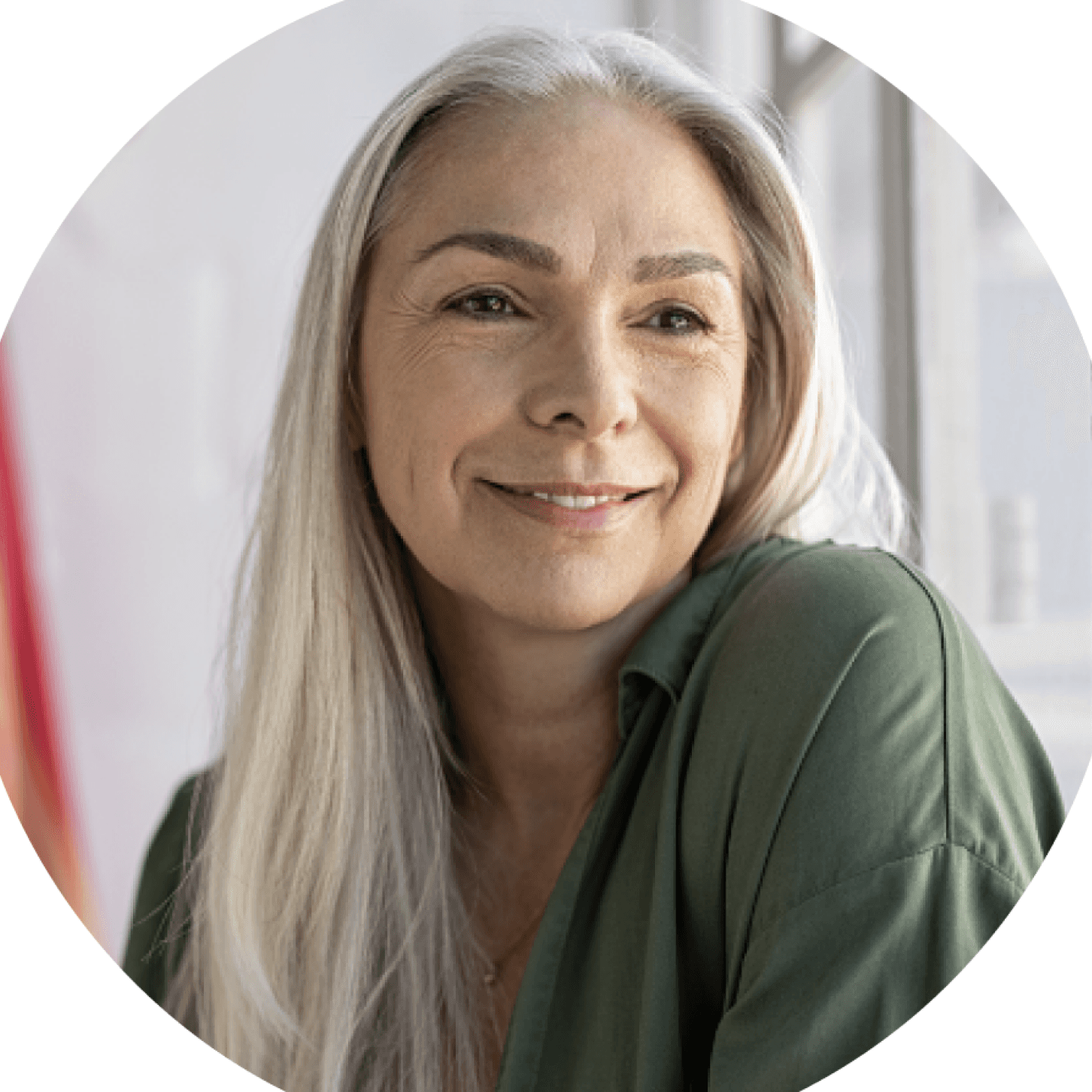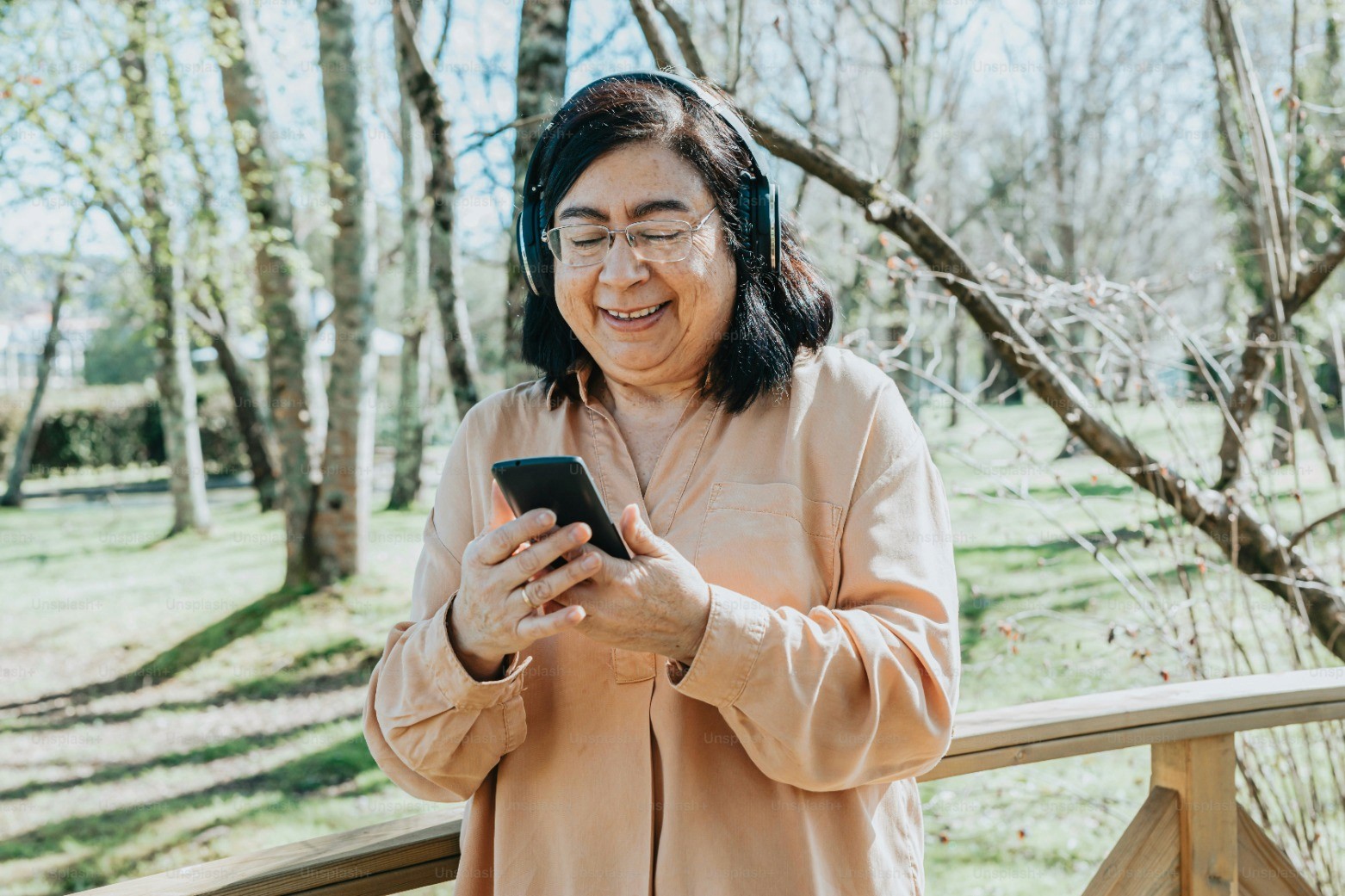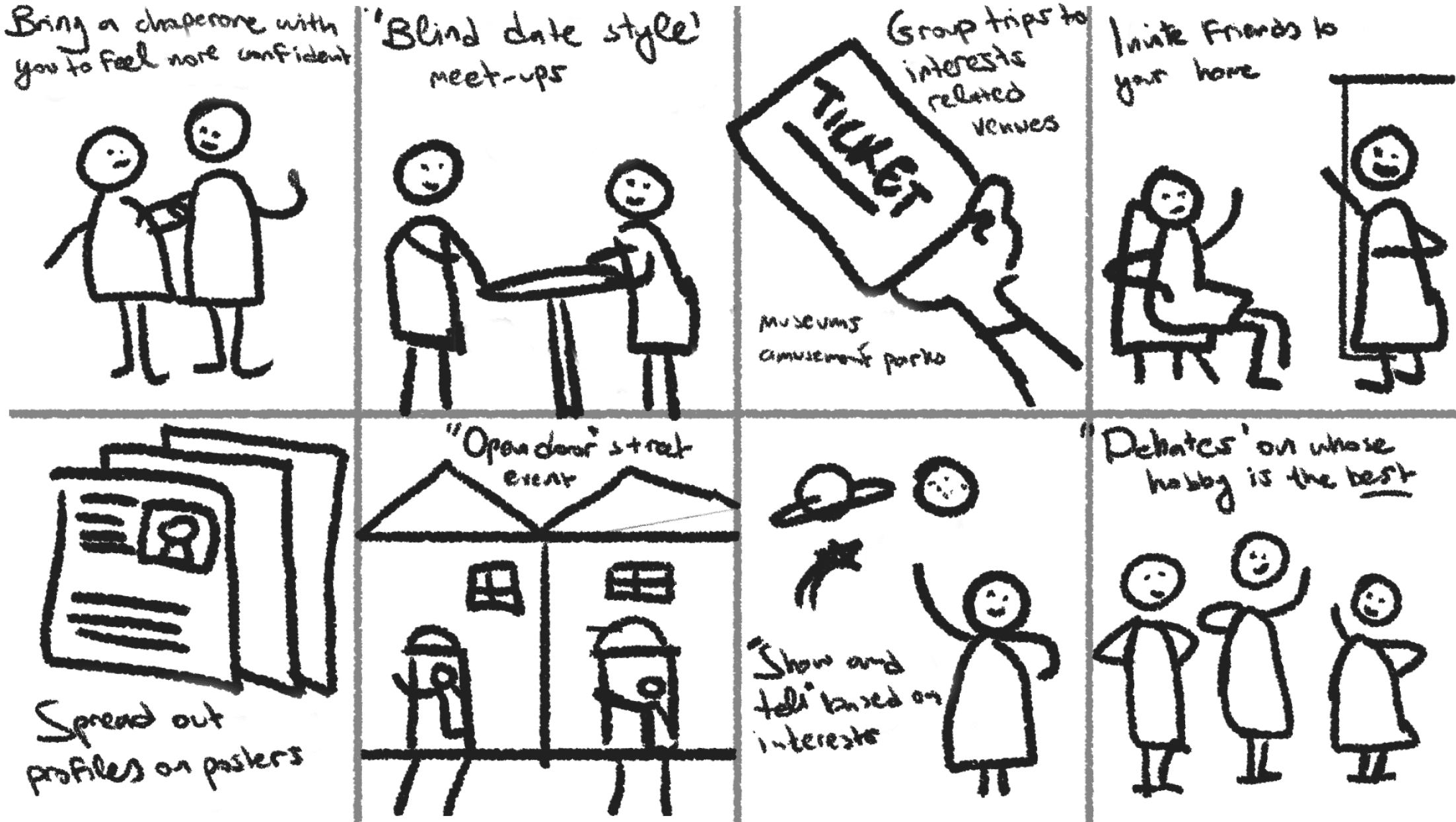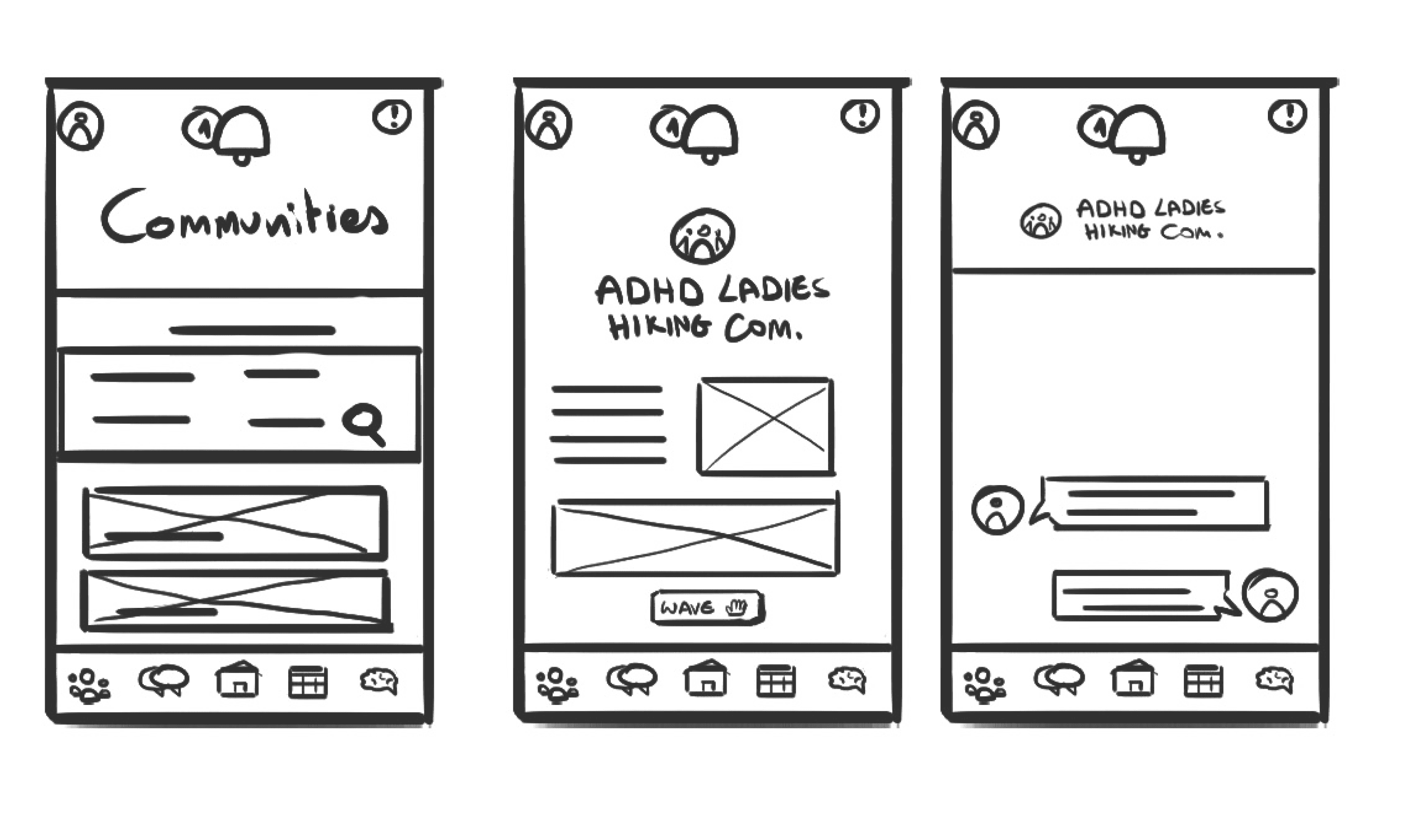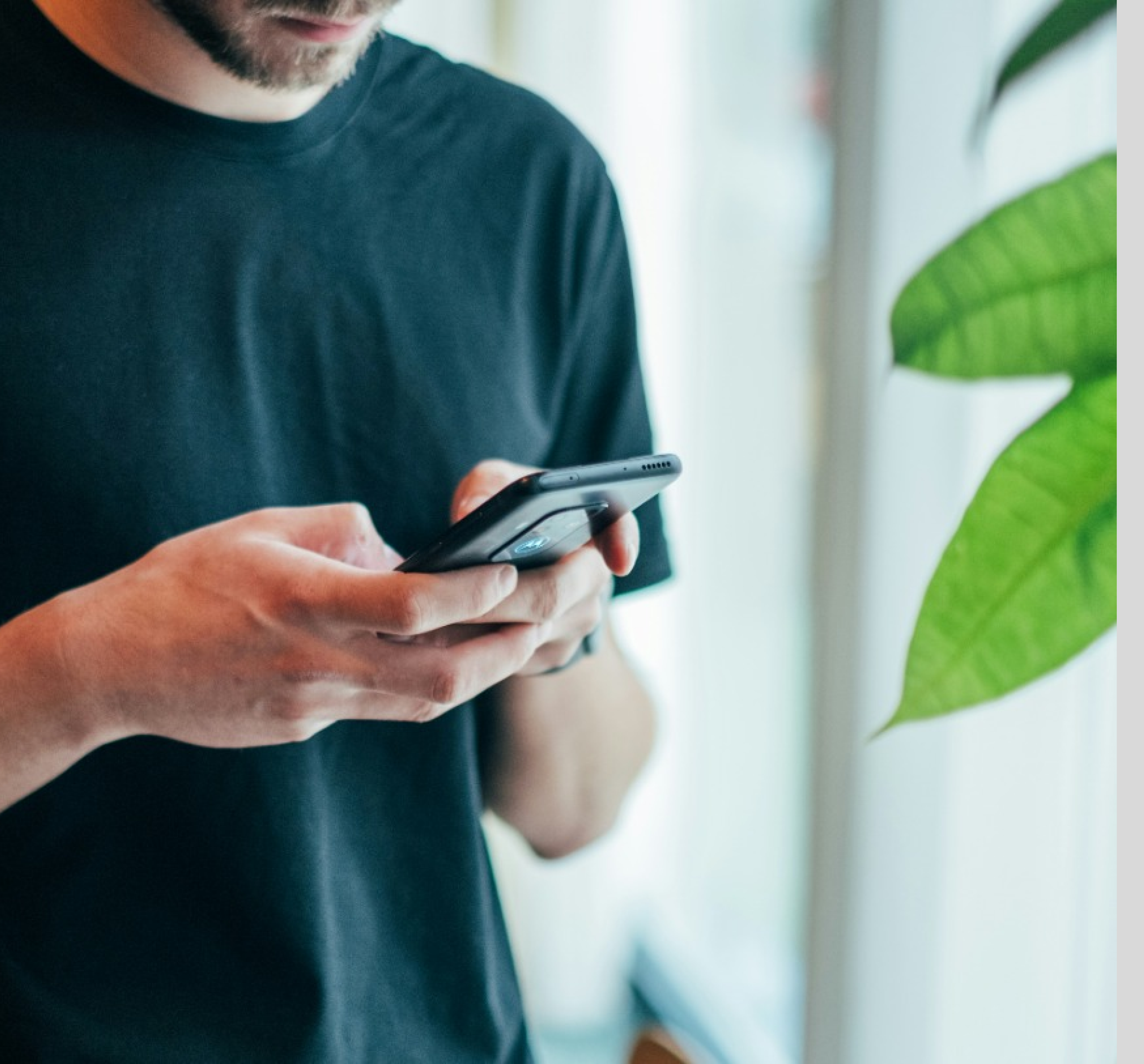DISCOVER
DEFINE
DEVELOP
DELIVER
DISCOVER
Six neurodivergent users aged 18-59 were shortlisted from the survey based on these criteria:
They have ADHD or were recently diagnosed with it
They use digital platforms to interact
They want to expand their friendship circle
They are open to meeting people in real life
While it was assumed ADHD users found conventional social media overwhelming, it turned out they enjoyed using it to interact with similar interest communities but struggled to turn online connections into real ones.

DISCOVER
Key findings
DEFINE
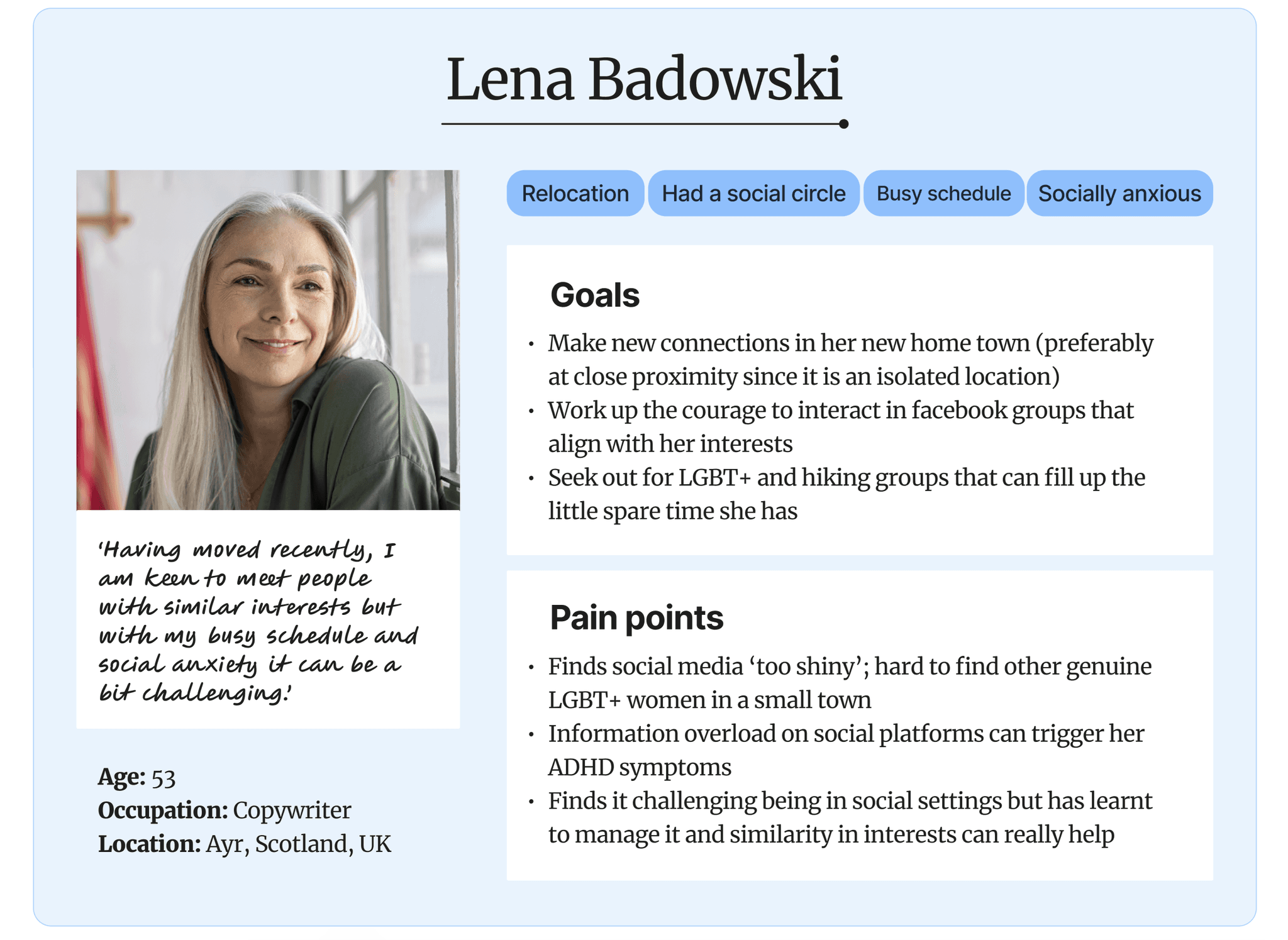
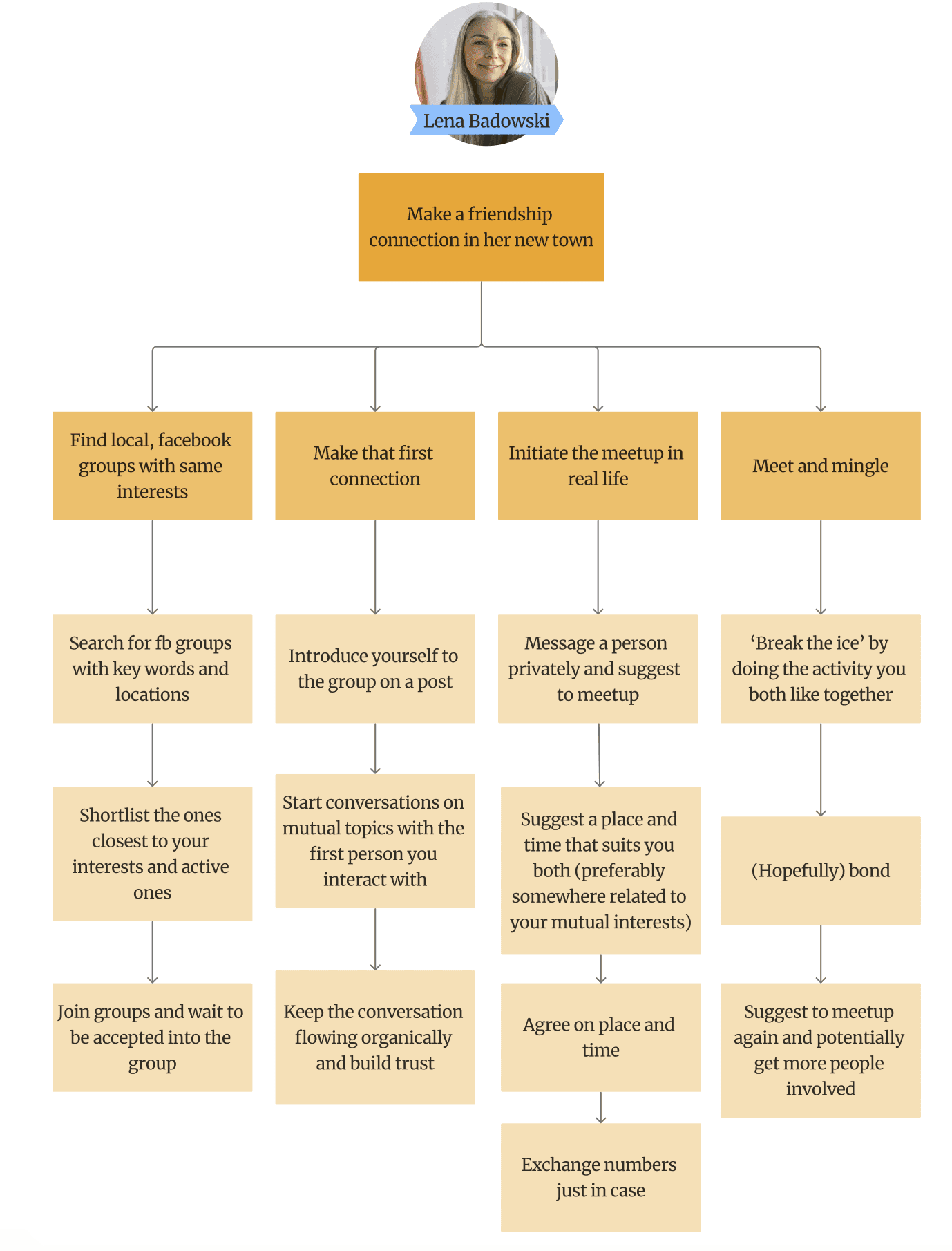

As a new resident in an isolated town, I would like to meet new people so I can expand my friendship circle.
As a socially anxious person, I would like to meet people with the same interests so I can feel more at ease.
As a busy copywriter, I would like to meet people close to me so I we can meet frequently.
Lena needs a way to feel more confident approaching new people because of her social anxiety.
We believe that by introducing her to groups with similar interests she will feel more confident to make that first step.
We will know this to be true when we see her positive reviews after interacting with the communities.
DEFINE
Key findings
Personas help us empathise with users by understanding their challenges
ADHD users are motivated to expand their friendships by location proximity and shared interests
For ADHD social media users, the screen acts as a security blanket, often preventing real-life meetings
New friendships start with curiosity, leading to pre-meeting nerves and relief if common interests are shared
DEVELOP
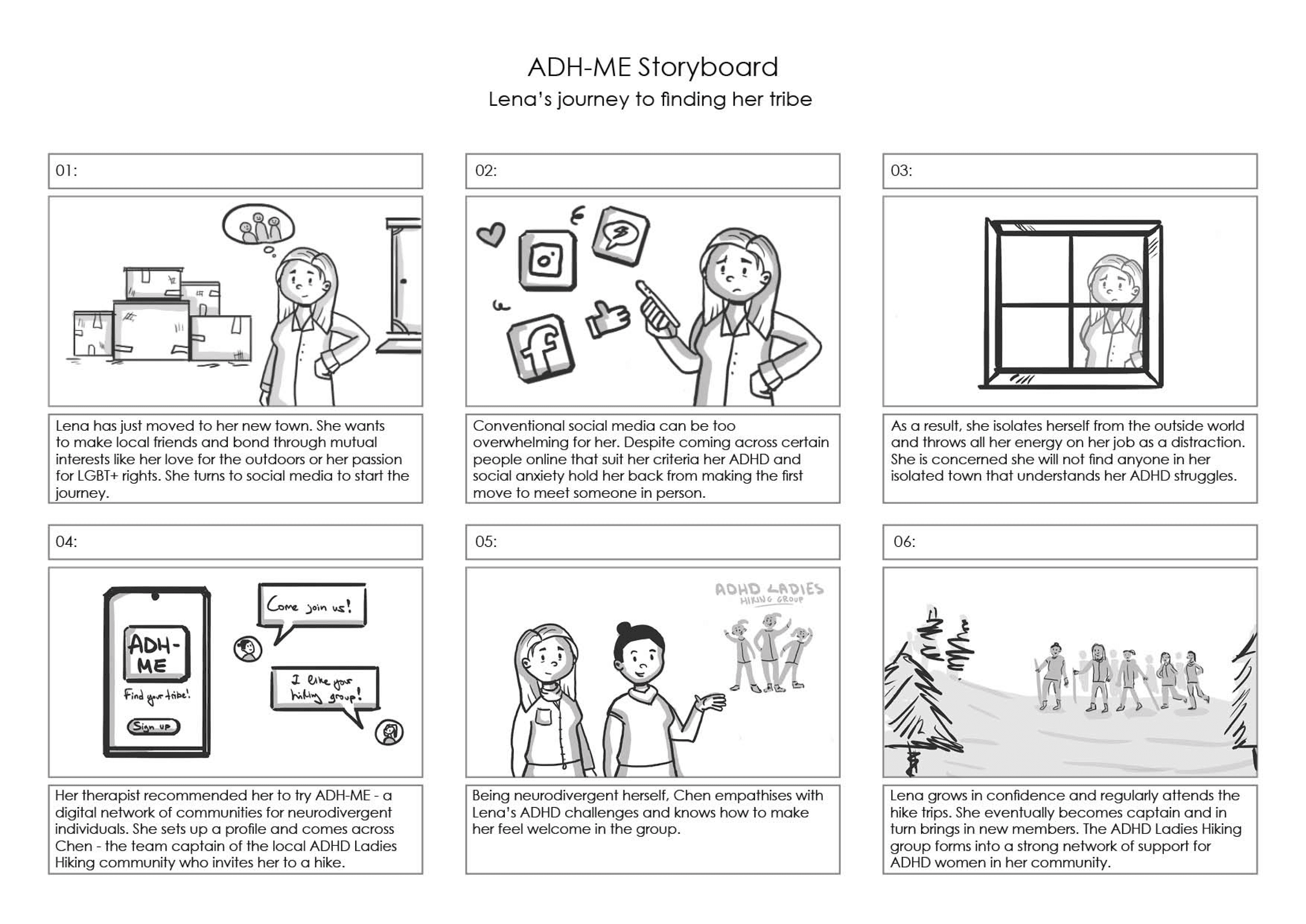
DEVELOP
Key findings
DELIVER
User flow 1: Input a handful of interest filters and simply explore related communities before signing up.
User flow 2: Optionally input further filtering. Identify the first community of interest and contact the community leader to join the community
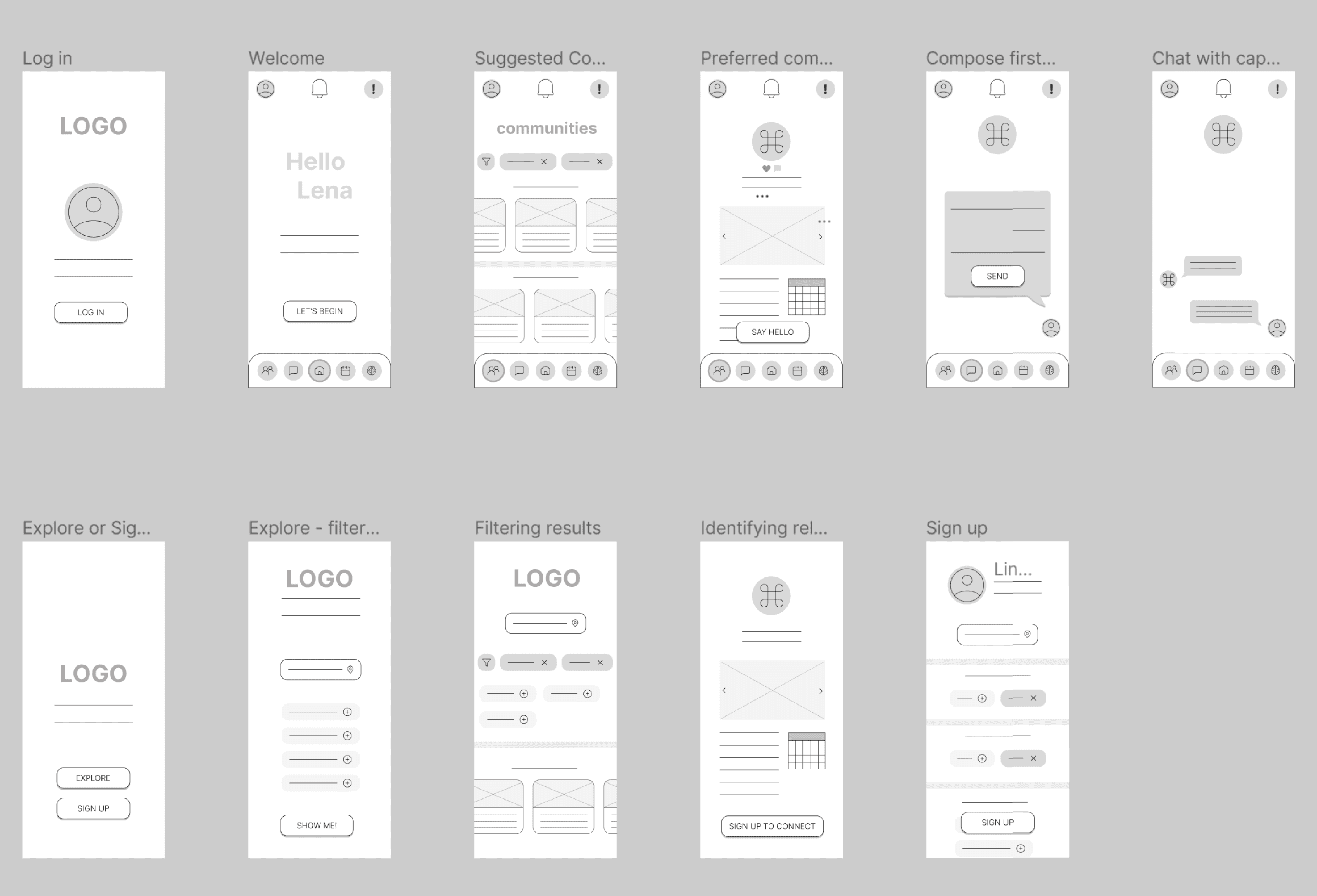
User testing revealed key findings, leading to changes in user flows:
Users open the app with a mission to find relevant content and quickly judge its relevance
Allowing users to add interests from the start personalizes the experience, encouraging full sign-up
The 'Explore' option should provide a preview of communities without interest filtering
Users should control whether to join a community, not the community leader, to prevent favoritism
User flow 1: Sign up with interest filters in a step-by-step process
User flow 2: Explore related communities (based on the information submitted on the sign up journey). Identify the first community of interest, join it and contact the community leader
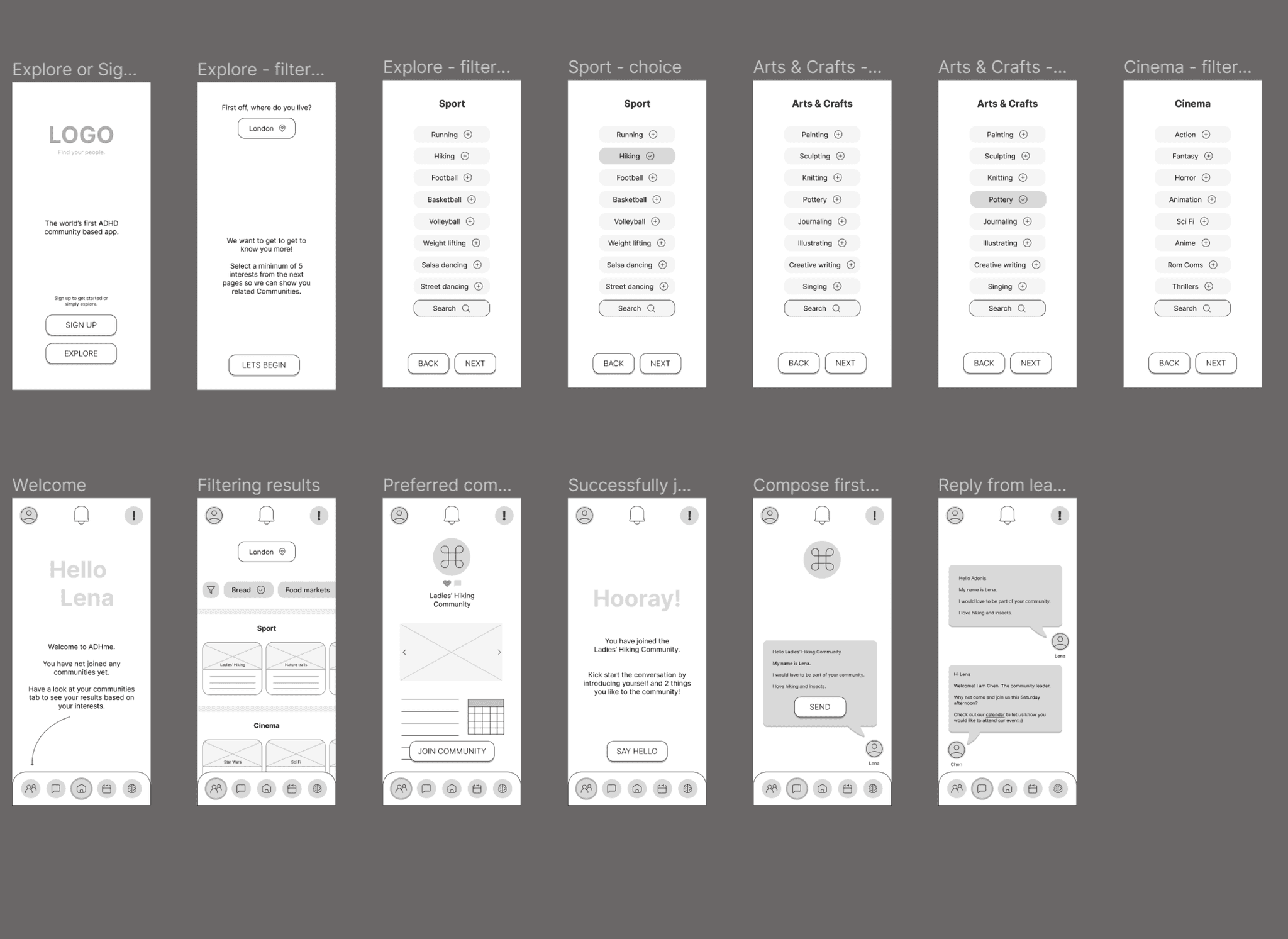
When it came to branding, ADHme came with a blank slate which gave me the unique opportunity to develop its own aesthetic identity.
At its core, the brand represents: Empowerment, Community, Diversity of thoughts, Connection, Understanding, Inclusion, Friendship, Collaboration, Celebration of differences, Enlightenment, Belonging, Synergy
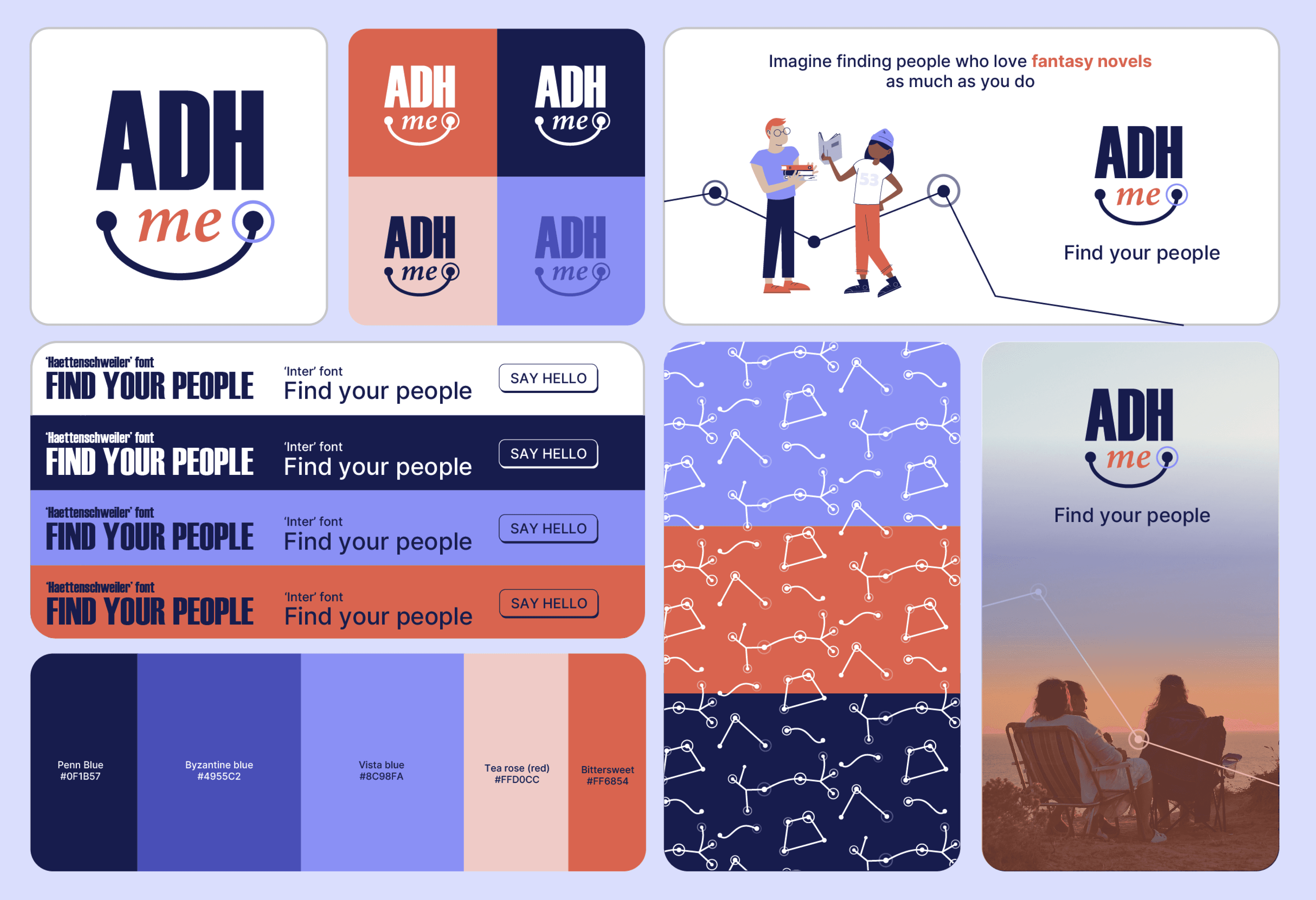
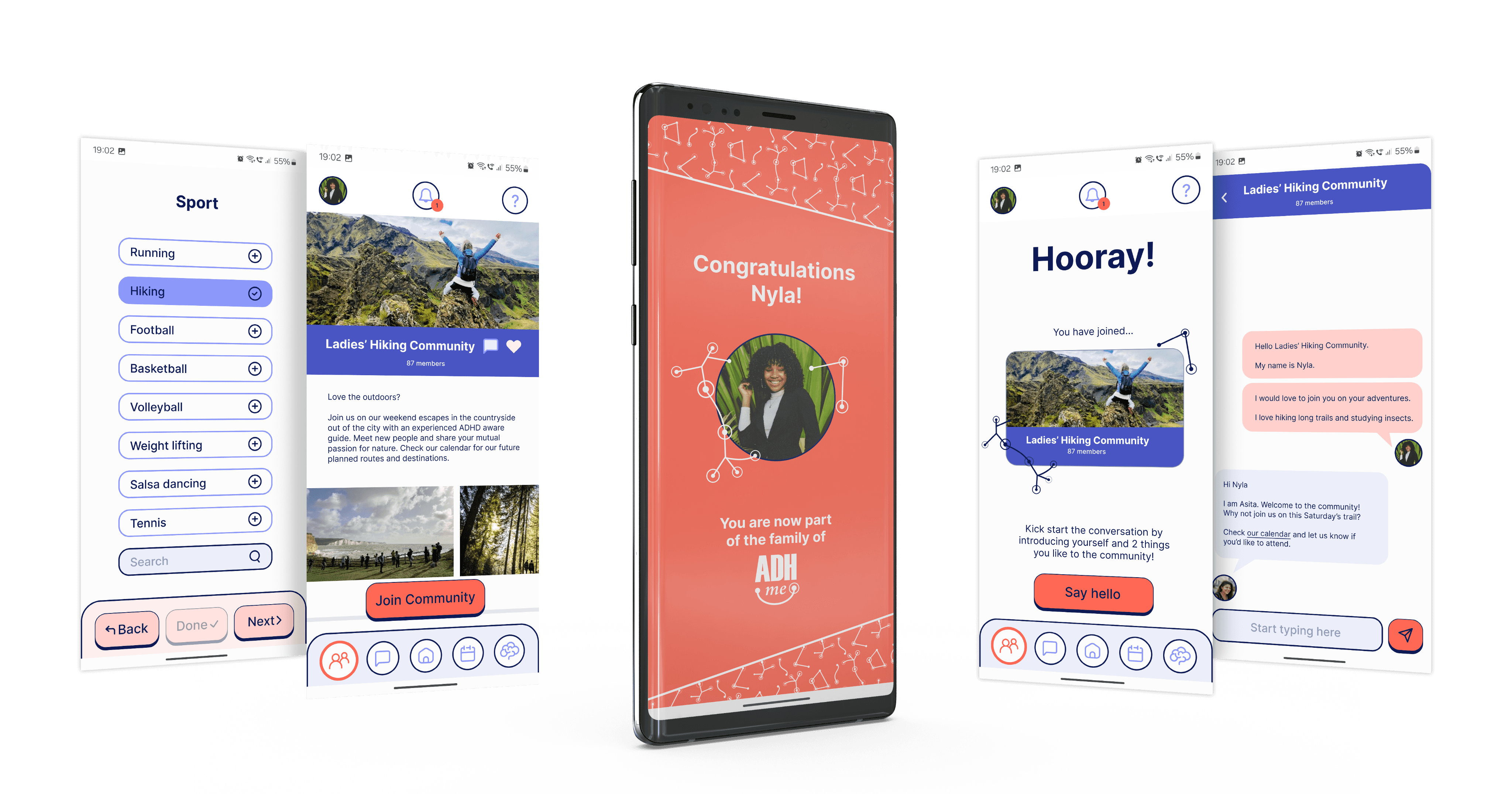

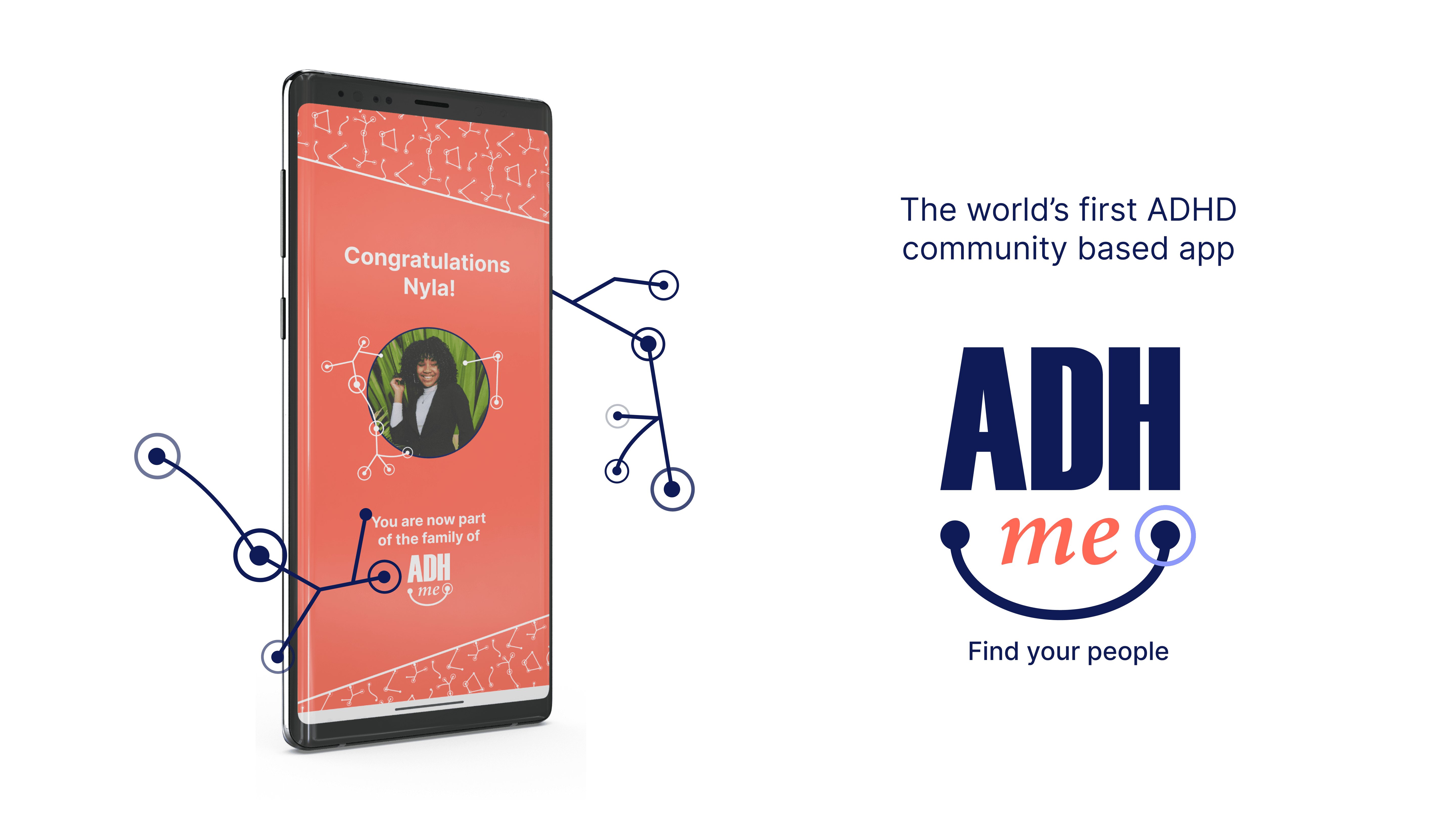
DELIVER
Key findings
